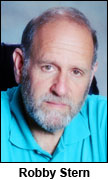OPINION
Dental practitioners could help fill holes in elderly dental care
Washington’s oral health care infrastructure is coping with decay. And it’s putting seniors in serious pain.
Elders across our state have managed, more than their parents did, to keep their teeth. That’s good news. But they’re also finding it harder and harder to get the support they need to keep their mouths in working order.
Left untreated, their teeth and gums face the same hazards as those of people of all ages: needless pain and suffering as well as difficulty speaking, chewing and swallowing.
That’s a problem not just for their mouths. A mountain of evidence has shown that untreated dental problems increase the risk of heart disease, diabetes and stroke — serious, chronic health conditions that cut our lives short. The mouth is connected to the rest of the body.
Why can’t they get dental care? Paying out-of-pocket for a dental visit is a sacrifice for most of us — especially anyone on a fixed income. As a result, about a third of adults age 65 years and older have untreated tooth decay.
Medicare does not cover routine dental services. But coverage alone doesn’t help if dentists don’t take your coverage. Even before the recent cuts that removed coverage of routine dental services for adults on Medicaid, too few dentists would see these patients.
People who can’t get routine dental care end up in the emergency room — suffering from an infection or other problems that require costly treatment. That’s the most expensive place to receive any type of health care.
In a recent 18-month period, 54,000 dental-related visits to several dozen Washington hospitals consumed $35 million scarce health-care dollars. If we had access to more affordable options for dentistry, those millions would have been better spent elsewhere — treating problems before they wreak havoc.
And this decayed oral health care system is hurting some more than others. A study by the Snohomish County Long Term Care & Aging agency identified lack of dental care as one of the greatest areas of need among seniors — and Chinese, Filipino, Korean, Vietnamese, and Hispanic elders reported special difficulty accessing care.
But this inequality in our oral health care system isn’t felt only by adults and seniors. Low-income children in Washington are 44 percent more likely to have untreated cavities and children of color are 18 percent more likely to have untreated decay by the third grade.
Part of the solution to create better health is for state lawmakers to create a licensed dental practitioner — a new kind of dental provider that can enhance dental care the same way physician assistants and nurse practitioners have diversified the field of medicine.
Next week, the Washington State Dental Association is considering whether to support this needed innovation. Similar practitioners are already at work in Minnesota and Alaska, extending more preventive services, fillings and extractions to seniors, adults and children – and working closely with dentists.
The holes in oral health care will take time to fill. That’s why we have to start now. We can no longer afford to keep expecting the same old dental care from a delivery system that’s simply not meeting the needs of thousands of Washingtonians.
Robby Stern is President of Puget Sound Advocates for Retirement Action (PSARA), an activist multi-generational organization uniting to create a secure future for older Americans, their children and their families. PSARA is a member of the Washington Dental Access Campaign.






